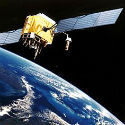Europe plots mega sat comms project
European Commission urgently presses for new satellite constellation to fill broadband gaps and support advanced services, such as self-driving cars.

Speaking at the thirteenth European Space Conference (ESA), European Union (EU) internal market commissioner Thierry Breton was clearly in a "rally-the-troops" kind of mood.
With the initial aim of putting an end to the region's dead zones, by giving "everyone" access to high speed broadband, Breton outlined plans to "develop rapidly" a new space-based connectivity initiative. Support for advanced services in the future, such as self-driving cars, is another objective.
And unlike Galileo, Europe's satellite navigation system, Breton wanted the new project to be "autonomous" and avoid dependence on "non-EU initiatives."
"My objective is to go fast," he said. "Therefore, it would be appropriate that the commission puts forward this year a proposal to the European parliament and the council so we can move concretely."
The EC recently launched a study on what a secure space-based connectivity system might look like. A selected consortium, comprising European satellite manufacturers, operators and service providers – along with telcos and launch service providers – are tasked with studying the possible design and development of the project.
"This will provide insights on the technical dimension, but also the governance structure, the financing, the missions, the exact scope," said an expectant Breton. "I expect their first feedback in April this year."
Fuzzy on detail
Inevitably perhaps, given the early stages of planning, how much the new satellite constellation might cost seems to be anybody's guess.
Breton did address the subject, however, raising the possibility of public-private partnerships. "We need to think outside the box, including in terms of financing, where we will have to mobilize all possible sources," he said. Breton referenced the EU budget, member states, ESA and the private sectors all as possible sources of funding.
Want to know more about 5G? Check out our dedicated 5G content channel here on Light Reading.
He also indicated that the constellation design will be "multi-orbital," combining LEO and GEO satellites. "It will also complement our existing infrastructures, creating synergies," added Breton. He thinks the new satellite infrastructure will enhance the Galileo signal, and boost performance of Copernicus, another European satellite system focused on Earth observation.
Crowded European skies
Breton's desire to move fast is no doubt motivated by the progress on two other sat comms initiatives, Starlink and OneWeb.
Part of Elon Musk's SpaceX company, Starlink has already started to offer beta broadband connections in northern Europe. OneWeb, owned by the UK government and Indian conglomerate Bharti Global, hopes to have an initial offering in the same region later this year.
— Ken Wieland, contributing editor, special to Light Reading
Read more about:
EuropeAbout the Author(s)
You May Also Like












